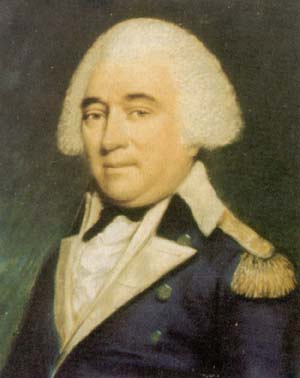Why was Anthony Wayne known as Mad Anthony?

Anthony Wayne’s Congressional Gold Medal
December 15, 2021
Anthony Wayne builds his Fort at Fort Wayne
December 15, 2021Did Anthony Wayne earn his sobriquet, “Mad Anthony Wayne” after the Battle of Stony Point? Unlikely.
“Long after Wayne’s death , when veterans of his campaigns tried to remember how their commander got his nickname “ Mad Anthony , ” they told stories of Jemmy the Rover , an Irishman who served as a spy in the Continental Army . A bit mad himself , though real or feigned no one knew for certain , Jemmy easily slipped through the British lines and came back with valuable information . But Jemmy also had a tendency to drink and become disorderly . Early in 1781 , a particularly trying time in Wayne’s life when mutiny stirred in the Pennsylvania Line , he grew impatient with Jemmy’s antics and ordered him to the guardhouse . When Jemmy was finally released , he asked the soldier who locked him up if “ Anthony ” was truly “ mad ” at him or just acting “ in fun . ” The soldier answered that Wayne was displeased with his conduct , and if Jemmy misbehaved again , he would be sent back to the guardhouse and receive twenty – nine well – deserved lashes . “ Then Anthony is mad , ” answered Jemmy , adding , “ Farewell to you ; clear the coast for the commodore , Mad Anthony’s friend . ” He disappeared into the night , and even though Wayne told his wife to keep an eye out for him , he was never seen again.”
Once more, Anthony Wayne did not mistreat the natives who he was at war with. At the Battle of Fallen Timbers, Wayne famously allowed the native warriors to quit the field and did not pursue them in retreat. Any commander wishing to destroy his enemy will pursue that enemy until destroyed or dispersed. That’s a standard rule of combat and we see many instances in war – such as Mead at Gettsyburg – where Mead was widely critized for not pursuing Lee’s retreating army and destroying him.
Wayne was also a stern disciplinarian and did not allow his men to loot or further pillage native property after their defeat at Fallen Timbers. Wayne kept his men focused on the completion of the Fort.
These are not the marks of a man who is bent on destroying his enemy. Wayne’s goal was to get them to the peace table and mistreating them would have been counterproductive to that goal.
Sources:
Stockwell, Mary. Unlikely General: “Mad” Anthony Wayne and the Battle for America . Yale University Press. Kindle Edition.
I. Wayne “Biographical memoir,” the Casket (December 1829), 498; Moore, Anthony Wayne, 132-133.

